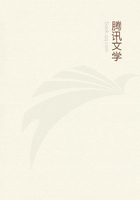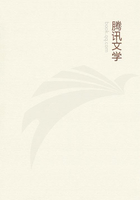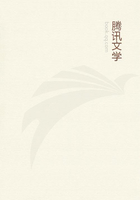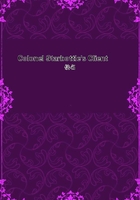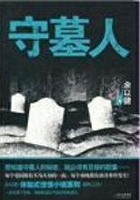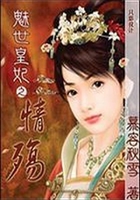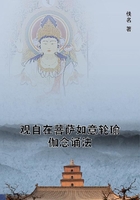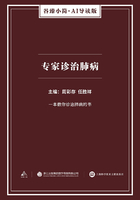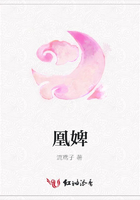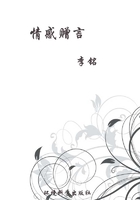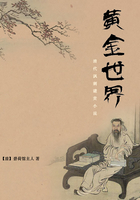"Oh, Mr. Ashmead, where else does one embrace the tenor?""And was that a grievance? Why, I'd embrace fifty tenors--if I was paid proportionable.""Yes; but he said I embraced one poor stick, with a fervor--an _abandon_-- Well, I dare say I did; for, if they had put a gate-post in the middle of the stage, and it was in my part to embrace the thing, Ishould have done it honestly, for love of my art, and not of a post. The next time I had to embrace the poor stick it was all I could do not to pinch him savagely.""And turn him to a counter-tenor--make him squeak."Ina Klosking smiled for the first time. Ashmead, too, chuckled at his own wit, but turned suddenly grave the next moment, and moralized. He pronounced it desirable, for the interests of mankind, that a great and rising singer should not love out of the business; outsiders were wrong-headed and absurd, and did not understand the true artist. However, having discoursed for some time in this strain, he began to fear it might be unpalatable to her; so he stopped abruptly, and said, "But there--what is done is done. We must make the best of it; and you mustn't think Imeant to run _him_ down. He loves you, in his way. He must be a noble fellow, or he never could have won such a heart as yours. He won't be jealous of an old fellow like me, though I love you, too, in my humdrum way, and always did. You must do me the honor to present me to him at once."Ina stared at him, but said nothing.
"Oh," continued Ashmead, "I shall be busy till evening; but I will ask him and you to dine with me at the Kursaal, and then adjourn to the Royal Box. You are a queen of song, and that is where you and he shall sit, and nowhere else."Ina Klosking was changing color all this time, and cast a grateful but troubled look on him. "My kind, old faithful friend!" said she, then shook her head. "No, we are not to dine with you; nor sit together at the opera, in Homburg."Ashmead looked a little chagrined. "So be it," he said dryly. "But at least introduce me to him. I'll try and overcome his prejudices.""It is not even in my power to do that."
"Oh, I see. I'm not good enough for him," said Ashmead, bitterly.
"You do yourself injustice, and him too," said Ina, courteously.
"Well, then?"
"My friend," said she, deprecatingly, "he is not here.""Not here? That is odd. Well, then, you will be dull till he comes back.
Come without him; at all events, to the opera."She turned her tortured eyes away. "I have not the heart."This made Ashmead look at her more attentively. "Why, what is the matter?" said he. "You are in trouble. I declare you are trembling, and your eyes are filling. My poor lady--in Heaven's name, what is the matter?""Hush!" said Ina; "not so loud." Then she looked him in the face a little while, blushed, hesitated, faltered, and at last laid one white hand upon her bosom, that was beginning to heave, and said, with patient dignity, "My old friend--I--am--deserted."Ashmead looked at her with amazement and incredulity. "Deserted!" said he, faintly. "You--deserted!!!""Yes," said she, "deserted; but perhaps not forever." Her noble eyes filled to the brim, and two tears stood ready to run over.
"Why, the man must be an idiot!" shouted Ashmead.
"Hush! not so loud. That waiter is listening: let me come to your table."She came and sat down at his table, and he sat opposite her. They looked at each other. He waited for her to speak. With all her fortitude, her voice faltered, under the eye of sympathy. "You are my old friend," she said. "I'll try and tell you all." But she could not all in a moment, and the two tears trickled over and ran down her cheeks; Ashmead saw them, and burst out, "The villain!--the villain!""No, no," said she, "do not call him that. I could not bear it. Believe me, he is no villain." Then she dried her eyes, and said, resolutely, "If I am to tell you, you must not apply harsh words to him. They would close my mouth at once, and close my heart.""I won't say a word," said Ashmead, submissively; "so tell me all."Ina reflected a moment, and then told her tale. Dealing now with longer sentences, she betrayed her foreign half.
"Being alone so long," said she, "has made me reflect more than in all my life before, and I now understand many things that, at the time, I could not. He to whom I have given my love, and resigned the art in which I was advancing--with your assistance--is, by nature, impetuous and inconstant.
He was born so, and I the opposite. His love for me was too violent to last forever in any man, and it soon cooled in him, because he is inconstant by nature. He was jealous of the public: he must have all my heart, and all my time, and so he wore his own passion out. Then his great restlessness, having now no chain, became too strong for our happiness. He pined for change, as some wanderers pine for a fixed home.
Is it not strange? I, a child of the theater, am at heart domestic. He, a gentleman and a scholar, born, bred, and fitted to adorn the best society, is by nature a Bohemian.
"One word: is there another woman?"

